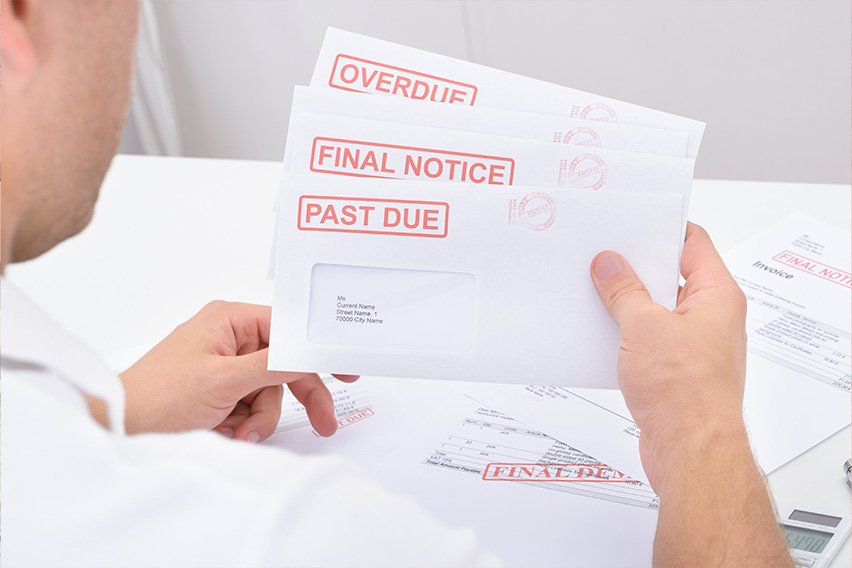Suing for Non-Payment of Services: How to Take Legal Action and Get Paid

Small businesses can sue for non-payment of services if they’ve sent an invoice to a client, followed up repeatedly by phone and email and escalated the problem as much as they can on their own. At that point, it’s clear the client is avoiding paying you at all costs and you may need legal help to get the money you’re owed for your work. Suing for non-payment of services involves making a formal demand for payment, filing a lawsuit and seeking a judgement in court. The process of suing a client for a past due invoice can be costly and time consuming, so it’s important that small business owners assess the amount owed and determine whether pursuing legal action is worth the effort.
These topics will take you through the process of suing for non-payment of services:
How to Sue for Non-Payment of Services
Who Pays Court Costs in Small Claims Court?
How to Sue for Non-Payment of Services
To sue clients for non-payment of services, small business owners need to assess the amount they’re owed and then take the necessary steps to file a lawsuit and take their client to court. Here are the steps to suing for non-payment of services:

Send a Final Demand for Payment
Before taking any formal legal action, it’s a good idea to send a final demand for payment to the client. There a good chance that the threat of legal action included in a final demand can convince the client to finally pay their overdue invoice. If not, the final demand for payment serves as important evidence in court that you made a final attempt to settle the issue before suing your client. A final demand for payment should be a formal letter that includes the following:
- A statement letting the client know they’re in default on the invoice payment
- The total amount owing for the invoice and any additional late fees that have accumulated
- A request for payment by a certain date for the full amount owing on the invoice
- An advisement that you may pursue legal action if the invoice isn’t paid by the deadline
Assess How Much You’re Owed
If you still don’t receive the money owed for your invoice after sending a final demand for payment, it’s time to evaluate whether it’s worthwhile to sue your client for non-payment. The costs associated with a lawsuit can be high and it can also be time consuming to pursue litigation. You need to make a business decision to determine if it’s worth the effort. First, assess what you’re owed: the total amount owing for all your invoices, as well as any related expenses for which you haven’t been reimbursed. Then, assess the financial health of the company you plan to sue to make sure they have the money to pay you back. If your business is facing financial challenges, exploring options like a tax settlement might be a viable alternative to legal action, providing a mutually agreeable resolution for both parties. Look at factors such as:
- What fixed assets they have, such as property and equipment
- Amount of cash on hand
- Corporate stocks and bonds
- Any debts or other liabilities
If the client is in danger of filing for bankruptcy or doesn’t seem to have enough money and assets to pay you back for what you’re owed, you might want to consider selling the debt to a collections agency instead of going through with a lawsuit.
Get Legal Advice
If you’re unsure whether it’s worth it to sue the client for non-payment or if you want advice about your legal options, consult an attorney for their professional advice. A consultation with a lawyer might be expensive, but it can help your case in the long term. A lawyer can help you determine whether a lawsuit is worthwhile in your circumstances and advise on the strength of your legal case. They’ll have helpful insights on the law governing your case. They can also give you insights into what court to file a lawsuit with based on the specifics of your situation.

Consider Small Claims Court
If you decide to go forward with a lawsuit, you need to decide what court to file the suit in. Your first option is to file in small claims court. Small claims court is typically the least expensive and least time consuming legal option available for small businesses looking to collect on debts. It is meant to solve disputes quickly and the process is straightforward enough that most people don’t hire a lawyer to represent them in small claims court. You can only file in small claims court if the amount owed to you is under a certain dollar amount. The maximum amount varies from state to state, but it’s typically between $2,500 and $25,000. If the client you’re suing doesn’t show up in small claims court, you will win the case by default. If they do show up, the trial is normally quick and straightforward and you’ll get a ruling the same day.
Consider A Civil Lawsuit
If the case you’re bringing against your client is complex or the amount you’re seeking exceeds the limits for small claims set by your state, you can consider filing a civil lawsuit instead. These cases are more formal and tend to take up more time than a small claims suit, sometimes lasting several days. Depending on the complexity of your case, you may also need to hire a lawyer to represent you in court. Your attorney’s fees, court fees and the amount of time you’ll spend on the trial may make you reconsider filing a civil lawsuit.
Who Pays Court Costs in Small Claims Court?
As the plaintiff in the case, you will need to pay the filing fee to file a lawsuit in small claims court. Once the judge rules on the case, though, they will usually award the fees to one of the two parties: either you, the plaintiff or your client, the defendant. It’s likely that whoever wins the case will win the fees. So, for example, if you win your case, the judge will probably rule that your client has to pay you the cost of your court fees, in addition to the sum they’re found to owe you for their past due bill.
RELATED ARTICLES

 How Does Invoice Payment Work?
How Does Invoice Payment Work? Do You Send an Invoice Before or After Payment? Invoice Timing Explained
Do You Send an Invoice Before or After Payment? Invoice Timing Explained Invoice Payment Methods For Small Business: How to Get Paid Faster
Invoice Payment Methods For Small Business: How to Get Paid Faster How Partial Payment Invoice Helps to Get Paid Upfront Payments
How Partial Payment Invoice Helps to Get Paid Upfront Payments How to Collect Money from Clients Who Won’t Pay
How to Collect Money from Clients Who Won’t Pay How to Set Up Automatic Payments for Your Business
How to Set Up Automatic Payments for Your Business